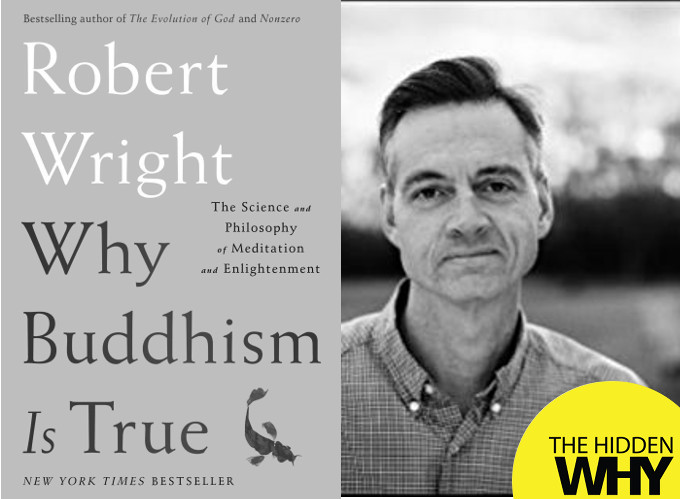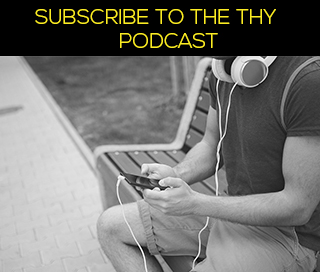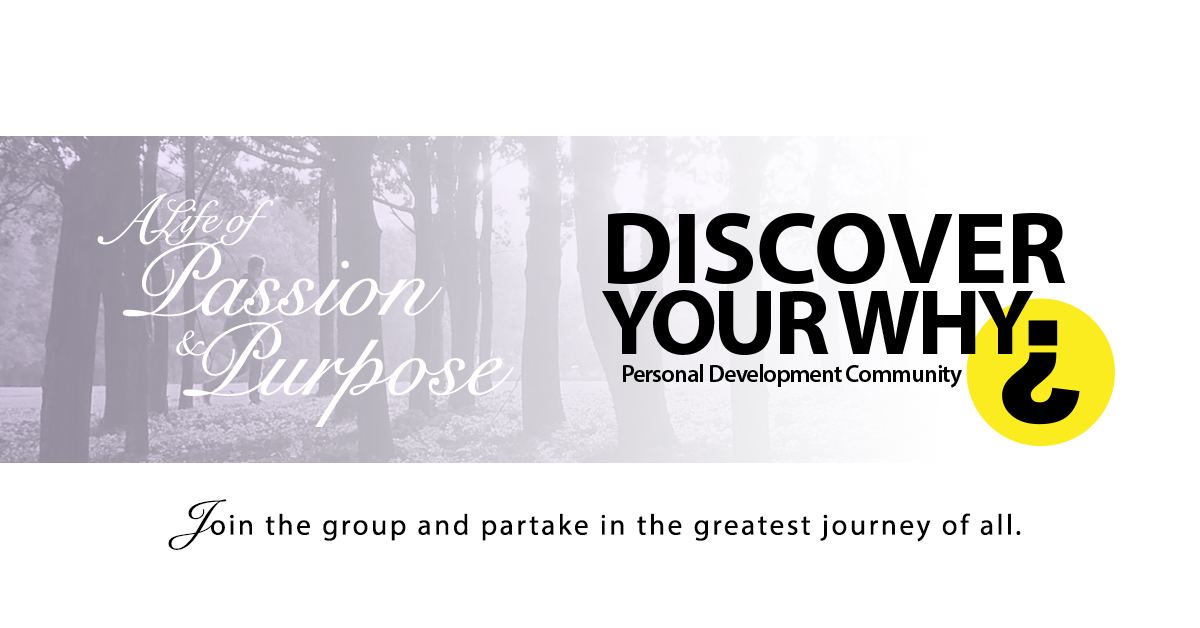
Why Buddhism is True: The Science and Philosophy of Meditation and Enlightenment
by Robert Wright
I loved this book. What an exciting and profoundly insightful read and one that is right up my alley. As I proceed on my journey in attempts to figuring life out and importantly trying to discover ways to dissolve suffering and regret to live with enduring deep happiness this book helps satisfy that itch.
Robert Wright has written a collaborative piece that combines the teachings and ideas of Buddhism with the science of psychology and science – particularly as it relates to evolutionary science, to highlight why Buddhism is true.
Importantly, Wright clarifies that science is as true as there is substantial corroborative evidence in favour of its theory and little evidence that is incompatible with it. And Wright does a fantastic job explaining why he believes Buddhism is “true” based on current modern day science – biological and psychological truths found in the theory of natural selection.
Firstly, I think it’s important to highlight that this book is not only for Buddhist or those interested in Buddha doctrines or teachings. I believe some level of knowledge will undoubtedly assist you in making the connections that the author highlights but it is not essential. An open mind and curiosity are all that is necessary.
If you remove the association of Buddhism from this text, the insights are about how to think more clearly so we can better understand what is real and purposeful compared to what is no. It benefits how well we can live our life. To remove the illusions of life so we can drown out suffering and exist with a greater sense of calmness, satisfaction, purity and joy.
The overriding theme and message in this book is the power of adopting some kind of mindfulness practice. Meditation or something similar. The author is knowledgeable in the fields of neuroscience, evolutionary theory and psychology, however, this book is more a reflection on his personal experience of “enlightenment” through mindfulness and meditation, which is states he’s far from being an expert.
Now for those of you who may become a little spooked by that term “enlightenment,” try not be. If it does bug you in some way, perhaps that’s more reason to read this book. You may just discover that the idea of enlightened isn’t such a crazy or impossible ideal. The author with his wisdom and knowledge clarifies this very adequately for the reader.
Personally, enlightenment to me is an ability to continually live towards an enduring state of profound happiness via awareness, understanding and an autonomous guidance of one’s life in both thought and behaviour. This definition of mine partly borrowed from German Philosopher Immanuel Kant’s essay on What is Enlightenment. His description of enlightenment was, “Enlightenment is man’s emergence from his self-incurred immaturity.”
If that doesn’t give you enough inspiration to pick up this book than I am not sure what will. Who doesn’t want to remove aversion from life? Who doesn’t want to live with higher moral purity and an enduring feeling of contentment and joy? The world needs more books like this.
When I look at the current state of the world, and all life I sense a tremendous agitation and suffering. I don’t wish to sound bleak or cynical, and I don’t think I am alone with this. I think many of us want to look the other way because to deal with the current state of affairs is a huge challenge. To manage our inner turmoil is challenging, confusing and confronting.
If we don’t try, make progress, if we don’t try to measure happiness in efforts to create meaningful solutions, if we don’t wake up, what will remain? What is the purpose of it all?
I suppose what the author presents within Why Buddhism is True is one possible solution. A solution that people have used for centuries and that is to develop awareness. In awareness, we can expose suffering and then be able to do the work to remove all that is unnecessary. From there may we create more happy and meaningful lives.
The author explains two Buddhist doctrines with the use of science and the theory of natural selection. Those are emptiness and non-self. Fascinating concepts that in the past I found very tricky to grasp, however, Wright has undoubtedly improved my understanding.
I think an improvement in my knowledge of neuroscience, the working of the brain and the design of organisms and the human life as it relates to natural selection has also helped. Thanks for reading. Thank you books.
Natural selection has life continually seek improvement to advance the conditions of life and raise our ability for survival and reproduction. The underlying purpose is to move towards anything that we will grow these standards.
If we have been designed to move continually towards what is beneficial for life, then there is also an underlying motivation to walk away from what is dissatisfying or sufferable. I believe this is what is meant when Buddha said: “life is suffering.” As humans we never seem quite content – there is always appears to be situations and moments in life that we dislike. I believe this is what is meant by the Buddhist term Dukkha.
Dukkha is the craving to avoid or remove aversion or desire to cling to pleasures. I believe modern day slavery is not a battle of one’s authority of another but rather an inability to conquer the Self. The same self that Buddhism teaches is an illusion. A creation of an identity that we come to believe we have a conscious level of control over when perhaps we do not. Again, the author explains all these concepts and the level of their truth well.
I’d like to close by saying that it is the same biological, chemical and genetic design that favours natural selection and survival that is also the cause of our suffering in life. Suffering that I feel is becoming more paramount in the chaos, novelty and confusion of modern life, as survival by meeting our most fundamental needs – food, water, warmth, is less a concern.
The real concern is our disengagement from being and practising awareness. A product of lacking accountability. Our inability to continually seek to understand what is “true” and what is not. A lack of control of the mind, self and reality we create and live. As Kant defines it, the self-incurred immaturity over our thoughts and behaviours, which I think this is the most significant threat to our survival.
If this book sounds of interest you can purchase Why Buddhism is True: The Science and Philosophy of Meditation and Enlightenment
here.
Please leave your thoughts, comments & questions below.
Peace, passion and purpose…
Other books that you may enjoy…
Further Reading and Resources
TED Talks: Ideas worth spreading
Elite Daily: The Voice of Generation Y
Four Hour Work Week: How to escape the 9-5, live anywhere and join the new rich.
The Minimalists: How to pursue a minimalist lifestyle and be happier.
Mind Hacks: Tips and Tricks for Using Your Brain
Rich Roll: Plantpowered Wellness Advocate
The Art of Charm: Build confidence, feel comfortable and networking differently.
The Art of Manliness: Encouraging men to be better husbands, fathers, brothers, citizens.
Tiny Buddha: Simple wisdom for complex lives.
Mind Body Green: Lifestyle media brand dedicated to inspiring you to live your best life.
Zen Habits: Find simplicity and mindfulness in life.
Creative NonFiction: “true stories well told.”
Barking Up the Wrong Tree: science-based answers and expert insight on how to be awesome at life.
The Positivity Blog: Practical articles on happiness, self-esteem, productivity and social skills.
FIND YOUR HIDDEN WHY with THE HIDDEN WHY (THW)
BUILD YOUR LIFE AROUND YOUR PASSION AND LIVE WITH PURPOSE
Sign up for free below and receive cool stuff from me each week + Plus a free copy of “The Four Pillars of Success”
In my weekly emails you will receive ideas, thoughts, learning’s and inspiration on:
- How to design a life that you want and live by your terms
- How to live a life with passion & purpose
- Methods, strategies, & techniques on life hacks
- Messages on how to better live your life
- We will also keep you up to date with fantastic interviews from THW podcast













Leave a Reply